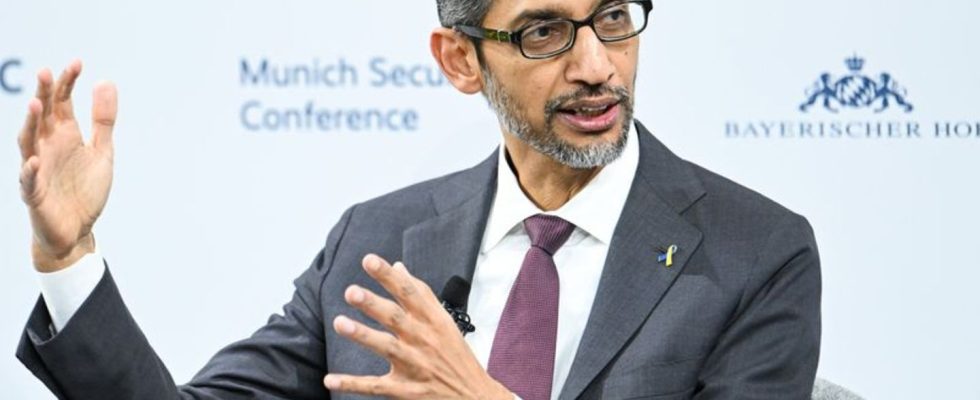Google, Meta & Co
Agreement against election manipulation by AI
Google boss Sundar Pichai takes part in the Munich Security Conference. Tech giants have signed an agreement against election manipulation using artificial intelligence. photo
© Tobias Hase/dpa
This year, more than four billion citizens around the world are called to vote, including in the USA. Experts fear manipulation by AI. A broad alliance wants to prevent this.
Leading technology providers want to prevent artificial intelligence (AI)-generated content from affecting political elections around the world. At the Munich Security Conference, representatives from 20 companies – including Adobe, Amazon, Google, IBM, Meta, Microsoft, OpenAI, TikTok and X (Twitter) – to work together to better detect and combat malicious AI content.
Tech providers are primarily targeting AI-generated audio, video and image files that deceptively mimic or alter the appearance or voice of political candidates, election workers and other key players in a democratic election. The initiative also targets digital content that provides voters with false information about when, where and how the elections will take place.
Telephone robot with “Biden’s voice”
Especially in the USA, where the presidential election will take place on November 5th, there is already plenty of experience with manipulative AI content in the current election campaign. There, a telephone robot recently asked people with the vote of President Joe Biden not to cast their vote during the primary elections in New Hampshire. The voice generated by an AI was almost indistinguishable from the real voice of the US President.
The head of the Munich Security Conference, Christoph Heusgen, said elections are the beating heart of democracies. The agreement is a crucial step to promote the integrity of elections, increase societal resilience and create trustworthy tech practices.
Microsoft President: Tools should not become weapons in elections
Kent Walker, President of Global Affairs at Google, said: “We cannot allow digital misuse to threaten the ability of artificial intelligence to improve our economies, create new jobs and advance advances in health and science.” Microsoft President Brad Smith said that as society reaps the benefits of AI, signatories to the agreement have a responsibility to ensure that these tools do not become weapons in elections.
As part of the agreement, the companies involved want, among other things, to re-evaluate their AI models to understand the risks they could pose in connection with fraudulent election content. At the same time, the companies want to support efforts to raise public awareness of this challenge. The signatories also want to promote media literacy and the resilience of society as a whole.

